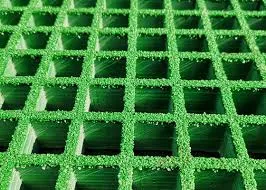
-
 Afrikaans
Afrikaans -
 Albanian
Albanian -
 Amharic
Amharic -
 Arabic
Arabic -
 Armenian
Armenian -
 Azerbaijani
Azerbaijani -
 Basque
Basque -
 Belarusian
Belarusian -
 Bengali
Bengali -
 Bosnian
Bosnian -
 Bulgarian
Bulgarian -
 Catalan
Catalan -
 Cebuano
Cebuano -
 China
China -
 China (Taiwan)
China (Taiwan) -
 Corsican
Corsican -
 Croatian
Croatian -
 Czech
Czech -
 Danish
Danish -
 Dutch
Dutch -
 English
English -
 Esperanto
Esperanto -
 Estonian
Estonian -
 Finnish
Finnish -
 French
French -
 Frisian
Frisian -
 Galician
Galician -
 Georgian
Georgian -
 German
German -
 Greek
Greek -
 Gujarati
Gujarati -
 Haitian Creole
Haitian Creole -
 hausa
hausa -
 hawaiian
hawaiian -
 Hebrew
Hebrew -
 Hindi
Hindi -
 Miao
Miao -
 Hungarian
Hungarian -
 Icelandic
Icelandic -
 igbo
igbo -
 Indonesian
Indonesian -
 irish
irish -
 Italian
Italian -
 Japanese
Japanese -
 Javanese
Javanese -
 Kannada
Kannada -
 kazakh
kazakh -
 Khmer
Khmer -
 Rwandese
Rwandese -
 Korean
Korean -
 Kurdish
Kurdish -
 Kyrgyz
Kyrgyz -
 Lao
Lao -
 Latin
Latin -
 Latvian
Latvian -
 Lithuanian
Lithuanian -
 Luxembourgish
Luxembourgish -
 Macedonian
Macedonian -
 Malgashi
Malgashi -
 Malay
Malay -
 Malayalam
Malayalam -
 Maltese
Maltese -
 Maori
Maori -
 Marathi
Marathi -
 Mongolian
Mongolian -
 Myanmar
Myanmar -
 Nepali
Nepali -
 Norwegian
Norwegian -
 Norwegian
Norwegian -
 Occitan
Occitan -
 Pashto
Pashto -
 Persian
Persian -
 Polish
Polish -
 Portuguese
Portuguese -
 Punjabi
Punjabi -
 Romanian
Romanian -
 Russian
Russian -
 Samoan
Samoan -
 Scottish Gaelic
Scottish Gaelic -
 Serbian
Serbian -
 Sesotho
Sesotho -
 Shona
Shona -
 Sindhi
Sindhi -
 Sinhala
Sinhala -
 Slovak
Slovak -
 Slovenian
Slovenian -
 Somali
Somali -
 Spanish
Spanish -
 Sundanese
Sundanese -
 Swahili
Swahili -
 Swedish
Swedish -
 Tagalog
Tagalog -
 Tajik
Tajik -
 Tamil
Tamil -
 Tatar
Tatar -
 Telugu
Telugu -
 Thai
Thai -
 Turkish
Turkish -
 Turkmen
Turkmen -
 Ukrainian
Ukrainian -
 Urdu
Urdu -
 Uighur
Uighur -
 Uzbek
Uzbek -
 Vietnamese
Vietnamese -
 Welsh
Welsh -
 Bantu
Bantu -
 Yiddish
Yiddish -
 Yoruba
Yoruba -
 Zulu
Zulu
rectangular fiberglass tanks
The Versatility of Rectangular Fiberglass Tanks
Rectangular fiberglass tanks are gaining popularity in various industries due to their exceptional strength, durability, and versatility. These tanks are specifically designed for efficient storage and transportation of liquids, making them ideal for applications in agriculture, wastewater management, chemicals, and food processing. In this article, we will explore the benefits, applications, and features of rectangular fiberglass tanks.
Advantages of Fiberglass Tanks
One of the primary advantages of rectangular fiberglass tanks is their resistance to corrosion and chemicals. Unlike traditional steel tanks, fiberglass does not rust or corrode, even when exposed to harsh chemicals or environmental conditions. This feature significantly enhances the lifespan of the tanks, making them a cost-effective solution for long-term storage.
Additionally, rectangular fiberglass tanks are lightweight compared to other materials, which simplifies transportation and installation
. Being lightweight does not compromise their structural integrity; instead, it allows for easier handling and reduces shipping costs. Furthermore, the smooth surface of fiberglass prevents the buildup of bacteria and biofilms, making these tanks ideal for industries that require hygienic conditions, such as food processing.Applications of Rectangular Fiberglass Tanks
Rectangular fiberglass tanks have a wide range of applications across various sectors. In agriculture, these tanks are often used for storing fertilizers, pesticides, and water. The ability to withstand harsh chemicals makes them a preferred choice for farmers looking to optimize their agricultural inputs while ensuring environmental safety.
In the wastewater management industry, these tanks serve as effective solutions for the storage and treatment of sewage and other waste products. Fiberglass tanks are designed to handle the corrosive nature of wastewater, preventing leaks and failures that can lead to environmental hazards. They can also be utilized in septic systems, where their resistance to decay ensures longevity and reliability.
rectangular fiberglass tanks

The chemical industry also benefits from rectangular fiberglass tanks, where they are utilized for the storage of a variety of chemicals, including acids and alkalis. Their ability to resist chemical attacks ensures safe storage without contamination or reaction risks. Moreover, manufacturers often customize these tanks to cater to specific chemical properties, enhancing safety further.
In the food and beverage industry, these tanks are used for storing liquids, including juices, oils, and syrups. The non-reactive nature of fiberglass ensures that the stored liquids maintain their purity and integrity, which is paramount in food safety compliance.
Key Features
Rectangular fiberglass tanks come with a range of features that enhance their functionality. One notable characteristic is their customizable sizing and design. Manufacturers can tailor the dimensions to fit specific requirements, ensuring efficient space utilization for various installations. Additionally, they often come with various access points, such as manways and inspection hatches, facilitating easy maintenance and cleaning.
Another crucial feature is their insulation capabilities. Many fiberglass tanks can be insulated to maintain temperature control for specific applications, such as storing temperature-sensitive liquids. This feature is particularly beneficial in the chemical and food industries, where maintaining the desired temperature can be critical.
Conclusion
In summary, rectangular fiberglass tanks represent an innovative and practical solution for liquid storage across diverse industries. Their remarkable resistance to corrosion, lightweight nature, and versatile applications make them an ideal choice for farmers, manufacturers, and environmental management companies alike. As industries continue to prioritize safety, efficiency, and sustainability, the demand for these tanks is likely to grow, establishing them as a cornerstone in modern storage solutions. With ongoing advancements in fiberglass technology, we can anticipate even more enhancements and innovations in the design and functionality of these essential storage units.
Latest news
-
Exploring the Benefits of Top Hammer Drifter Rods for Enhanced Drilling PerformanceNewsJun.10,2025
-
High-Precision Fiberglass Winding Machine for GRP/FRP Pipe Production – Reliable & Efficient SolutionsNewsJun.10,2025
-
FRP Pipes & Fittings for Shipbuilding - Corrosion-Resistant & LightweightNewsJun.09,2025
-
Premium FRP Flooring Solutions Durable & Slip-ResistantNewsJun.09,2025
-
Premium Fiberglass Rectangular Tanks Durable & Lightweight SolutionNewsJun.09,2025
-
Tapered Drill String Design Guide Durable Performance & UsesNewsJun.09,2025









